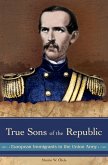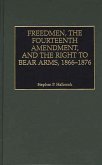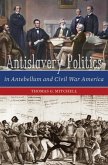Although a poor replacement for a professional military in wartime, the militia embodied a set of ideas that defined attitudes toward social order, civic responsibility, and the nature and relative powers of the government. It was the supreme expression of civic values in a traditional, communal, agrarian village society. Rowe argues that the antebellum militia should be seen as a social and political institution, rather than a military one, and contends that it is a key to understanding the political and social values of early 19th century America. Ultimately, changing social and political values, demographic change and mobility, and finally the dramatic expansion of federal power occasioned by the Civil War would destroy the traditional militia. Because the militia's functions, failures, and meanings were most clearly apparent in new settlements along the frontier, Rowe examines three case studies that represent successive leaps across the Appalachians (Kentucky), the Mississippi (Missouri), and the Great Plains (Washington Territory). The first generation of settlers in Kentucky deliberately built a formal militia organization, in part for self-defense, in part as an explicit ideological and political statement. Despite both pre-existing Franco-Spanish militia and federal attempts to use the Territory in militia reform, American settlers in Missouri created a traditional Anglo-American militia there. A generation later, settlers in Washington Territory attempted to do the same, but the effort dissolved in a bitter controversy over the territorial governor's declaration of martial law.
Hinweis: Dieser Artikel kann nur an eine deutsche Lieferadresse ausgeliefert werden.
Hinweis: Dieser Artikel kann nur an eine deutsche Lieferadresse ausgeliefert werden.









